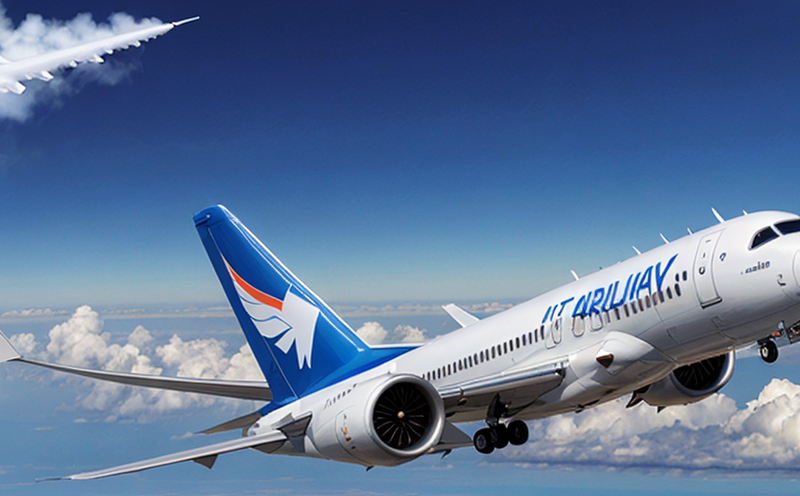RTCA DO-200A Software Validation for Aeronautical Databases
The RTCA DO-200A standard is a critical regulatory requirement designed to ensure that software used in commercial aviation systems meets the highest levels of safety, reliability, and performance. This service focuses on validating aeronautical databases using the RTCA DO-200A guidelines, ensuring compliance with the industry's stringent requirements.
Aeronautical databases are crucial components of modern aircraft, providing pilots and maintenance teams with critical information necessary for safe operations. From navigation data to performance metrics, these systems must be accurate, reliable, and free from errors that could jeopardize flight safety. RTCA DO-200A ensures this by establishing a rigorous validation process that covers all aspects of the database's design, development, integration, and operation.
The first step in any validation effort is understanding the specific requirements set forth by RTCA DO-200A. This involves identifying critical data elements, defining acceptable error rates, and ensuring that all processes are documented and traceable. Our team of experts works closely with clients to ensure that these initial steps are completed accurately and efficiently.
Once the documentation is in place, we proceed with a series of tests designed to verify the integrity and accuracy of the database. These tests include:
- Static analysis
- Unit testing
- Integration testing
- System testing
- User acceptance testing
Each phase is critical in ensuring that any potential issues are identified and resolved early in the development process. Static analysis involves reviewing the code for potential errors or inconsistencies, while unit tests focus on individual components to ensure they function as intended. Integration tests verify that different parts of the system work together seamlessly, and finally, user acceptance testing ensures that the final product meets end-user requirements.
Our laboratory utilizes state-of-the-art equipment and software tools to conduct these tests. For example, we employ automated test scripts to streamline the process and reduce human error. Additionally, our team includes experienced aerospace engineers who have a deep understanding of both the RTCA DO-200A standard and the specific challenges faced by manufacturers in this industry.
The end result is a validated database that not only meets but exceeds the requirements set forth by RTCA DO-200A. This ensures compliance with applicable regulations, enhances safety, and supports the development of safer aircraft systems. Our team also provides detailed reports documenting all aspects of the validation process, ensuring transparency and traceability.
By partnering with us for your RTCA DO-200A software validation needs, you can be confident that your aeronautical databases are up to the highest standards of safety and reliability. We offer comprehensive support throughout every stage of the process, from initial consultation to final report delivery.
Why It Matters
The importance of RTCA DO-200A software validation cannot be overstated in the aerospace industry. Compliance with this standard is not just a regulatory requirement; it's essential for ensuring that all systems function safely and reliably under all conditions. Failure to meet these standards can lead to costly delays, reputational damage, and most importantly, safety risks.
RTCA DO-200A addresses several key areas critical to aviation safety:
- Data accuracy
- Error handling
- System integrity
- User interface design
- Performance under stress conditions
By addressing these factors, RTCA DO-200A helps manufacturers create robust systems that can withstand the rigors of real-world operations. This is particularly important given the increasing complexity and interconnectedness of modern aircraft systems.
In addition to enhancing safety, compliance with RTCA DO-200A also offers several business benefits:
- Improved reputation
- Enhanced customer trust
- Reduced liability risks
- Streamlined regulatory approval processes
These advantages can provide a significant competitive edge in an industry where safety and reliability are paramount.
Applied Standards
| Standard Name | Description |
|---|---|
| RTCA/DO-200A | Guidelines for the development, integration, and operation of aeronautical databases. |
| ISO 9001:2015 | International standard for quality management systems. |
The RTCA/DO-200A guidelines provide the framework for our validation process, ensuring that every aspect of your database is thoroughly evaluated. We also adhere to ISO 9001:2015 standards to maintain high-quality practices throughout all stages of the project.
International Acceptance and Recognition
- Aerospace manufacturers worldwide recognize the importance of RTCA DO-200A compliance.
- The standard is widely accepted in North America, Europe, and Asia.
- Many international regulatory bodies mandate adherence to RTCA DO-200A.
Given its global recognition, RTCA DO-200A validation is a key step in ensuring that your products meet the standards expected by customers around the world. Our laboratory's expertise and rigorous testing procedures are widely respected within the industry.





